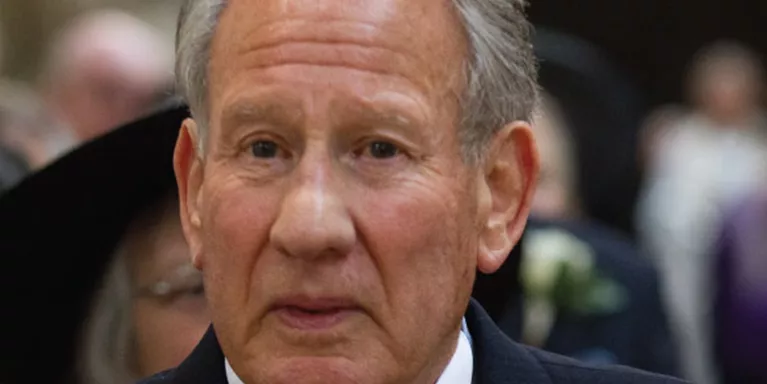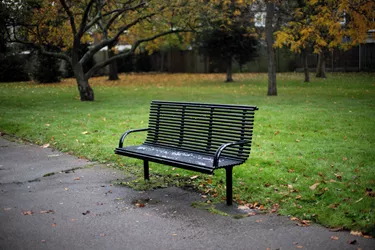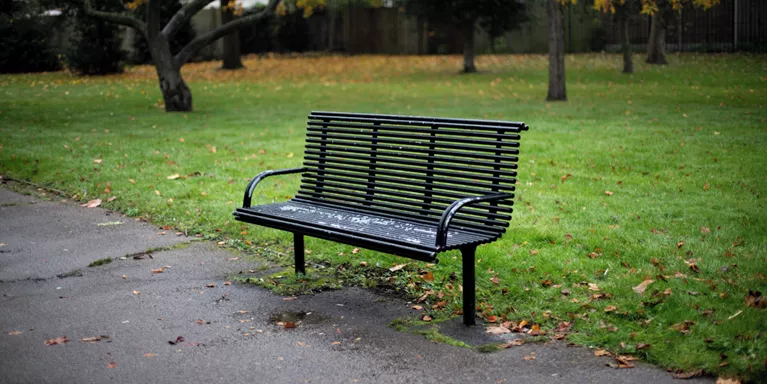The loneliness of mental health problems
Rosie blogs about her experience of loneliness and mental health.
Today I decided to write a blog about mental health and loneliness. This is a subject very close to my heart as I find loneliness to be one of the most difficult emotional responses to deal with, and one of the most poignant symptoms of my depression.
I think this is a particularly difficult subject to tackle because, as with so many aspects of mental illness, loneliness can be a difficult feeling to describe, particularly because, as a lot of you will understand, I am not physically lonely or isolated. I have just completed an MA on a very intense, full time course. I was surrounded by people 9-6 during college contact hours and then spent my evenings in the company of my flat mates. I am thus, according to logic, anything but lonely. However loneliness for me takes on a different meaning.
I feel isolated and lonely in my struggles with mental health problems. Now don’t get me wrong; I know the facts. I know 1 in 4 people suffer from them. However, when you are in the depths of a depression you forget this; you think you’re the only one battling these dark emotions.
I have identified two main, prevailing reasons why I feel this way. Firstly it is very difficult for those who don’t suffer from a mental health problem to understand/ empathise with how you are feeling. Sympathise they may do. But empathy and true understanding can only come, I believe, with experience, or some very intense/ very good training! Friends and acquaintances have tried to offer me advice and kind words, but their words often have the opposite effect. I have heard the classics ‘pull yourself together’, ‘put things into perspective’ and ‘stop being dramatic’ on countless occasions and that only serves to make me feel worse about what I’m going through.
You can go part of the way to remedying this predicament by explaining to people how you feel. This is where I fall short and this leads me onto the second reason for my persistent feelings of loneliness: I find it very difficult to talk face to face with people about how I am feeling. I come across fairly eloquently on my blog, Twitter and Facebook accounts (where I passionately discuss mental health problems and my experiences of Bipolar, Depression and Borderline Personality Disorder). But having face-to-face conversations about my mental health causes me to feel embarrassed, insecure and awkward. This is where loneliness kicks in. When people ask probing questions I turn away, brushing off inquiries with the usual ‘I’m fine’.
Because I have been let down in the past by so many people, I am scared of letting anyone new, or indeed old, in. I push people away. I’ve created walls, formed to provide protection against the world. I even push older friends and family away. If someone isn’t close to me emotionally then they can’t let me down. Unfortunately I have ended up pushing almost everybody away. I am lonely because I can’t let anyone get near me. I am scared that they won’t understand. And these fears are somewhat founded in truth. On the whole, people haven’t been able to understand my illness. In the past this has led to break-ups, arguments, bullying, etc. At school girls would tell me that I was ‘making up my depression’, that I was ‘putting it on for attention’, and that my ‘panic attacksweren’t real’. These words have left deeper wounds than my self-harming. I am still anxious about getting similar reactions.
I have been driven to believe that if I cannot help myself then obviously nobody else is going to be able to help me. I shut myself off from exterior interference, sure that if I could just have a moments peace with myself that I would be able to sort out what is going on in my head. This hasn’t happened so far. In fact being alone has seemingly only served to worsen my problems. I am resenting the fact that I have made myself emotionally distant and unavailable to my friends. I have imposed this loneliness on myself in some respects; it is a never-ending cycle of self-doubt and blame.
A lot of the problem is that I don’t believe I can get better and therefore I resent people who try to help me. I’d rather be alone with my problems.
However I have started blogging regularly about how I am feeling. It’s a way of letting people in; albeit slowly and from a distance. Maybe it is something you could try if you are feeling isolated? The online community has been a huge comfort to me in times of doubt, despair and depression.
I think it’s important to recognise the fact that even if someone is surrounded by people, they may be feeling completely cut-off and isolated emotionally. Even sending a text could help alleviate these feelings, so with this blog, I want to encourage people to be there for each other.


Information and support
When you’re living with a mental health problem, or supporting someone who is, having access to the right information - about a condition, treatment options, or practical issues - is vital. Visit our information pages to find out more.
Share your story with others
Blogs and stories can show that people with mental health problems are cared about, understood and listened to. We can use it to challenge the status quo and change attitudes.

















